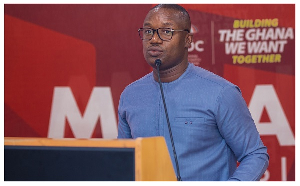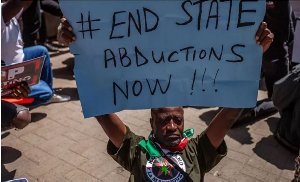Ishmael Mensah Blog of Friday, 3 January 2025
Source: Ishmael Mensah
"The savings and loans sector's cleanup was delayed due to budgetary constraints." The governor of the BoG says

Dr. Ernest Yedu Addison, the governor of the Bank of Ghana (BoG), has provided insight into the financial sector's unfinished cleanup, with an emphasis on the Savings and Loans (S&L) subsector.
In a January 2 interview with Joy News' PM Express Business Edition, he said that although there had been great advancements, the revocation of licenses for certain problematic institutions had been delayed due to a lack of funding, leaving depositors in a precarious situation.
Dr. Addison was open about the difficulties in properly resolving the problems in the savings and loans industry.
"All right, did we finish cleaning up? You're asking this question," he started.
Several institutions that are currently having issues are part of the legacy we inherited, particularly on the S&L side.
"The government lacks the resources to return the deposits to the depositors, which is the straightforward reason their licenses have not been revoked."
He claimed that financial limitations, not monitoring, were the problem.
"We have been waiting for the financial means to address that issue for the past three years.
He said, "We would have liked to have had the resources to have finished the cleanup on the S&L side, but we didn't."
Dr. Addison informed the public that there would be no effect on the financial system as a whole, even if the cleanup was not yet complete.
Luckily for us, these institutions are not systemic. They truly won't have a systemic effect on the banking sector when you consider their small and level of exposure," he said.
He did, however, recognize the annoyance of depositors who are still awaiting their money.
Our conversations with the IMF have included this topic. That matter will be addressed after the fiscal issue is settled," he confirmed.
Dr. Addison emphasized the important actions made to address depositor concerns in other financial sector segments while reflecting on the larger cleanup efforts.
"As of the specified deadline, investors and depositors who adhered to the receiver's deadlines have received their deposits in full," he said.
Depositors received both their initial defaults and the interest they had accumulated over time. Although the majority of them were compensated, it made the entire exercise extremely costly.
Dr. Addison's comments draw attention to a crucial obstacle facing the financial sector's recovery: striking a balance between the need to rebuild trust in savings and loan institutions and budgetary restraints.
He recognized the need to address outstanding concerns in order to finish cleaning up the industry, even though the central bank has managed to control possible contagion consequences.
"The cleanup of the banking sector was about building a foundation for long-term growth, not just repairing a broken system," he stated.
"We need to make sure that every part of the financial industry, including the savings and loans industry, can carry out its responsibilities in an efficient manner."


















